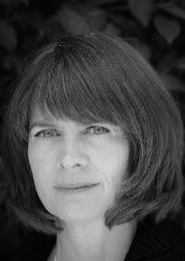Interview with author Terri Glass
11/2/15
11/2/15

1. How does writing nonfiction challenge you as a writer? In your own experience, is it more or less difficult to write nonfiction versus creative writing?
Nonfiction has been a challenge for me, because I am foremost a poet and used to consolidating my language down to few words as possible. In the essay, I can extend the line. I can include scientific research into my writing. Learning to write the essay has been both exploratory and problematic. I am not the best grammarian and I have more leeway with that in poetry since it breaks grammatical rules. But in nonfiction, I am usually working with complete sentences that extend my thoughts outward often to explain things. Going back and forth between explaining facts and a more poetic flow of language and not breaking the continuity of the writing can be very difficult. I want my sentences to sing across the page and slide into reverie or reflection. In other words, I want my prose to be poetic yet be able to reveal more information than a poem can.
2. What advice would you give other aspiring writers?
Read as many writers you admire and study them by breaking down what they are doing on the page that captivates you. Also be an avid reader about subjects you are just plain curious about whether that be polar bears, failed marriages or a flagging economy.
I recommend having an active ongoing writing group to get feedback on your work. Graduate school is not for all writers but can be helpful for those who want an intense ride exploring their craft and have a stomach for the critique. Another route is to choose a writer you admire and ask him/her if he/she would be your mentor for a period of time. I did this when I was in my thirties and about to abandon poetry altogether. I wrote to the poet, Robert Bly, and he commented on my work for a period of time, which renewed my faith in being a writer.
3. If you could meet one author (living or historical), who would it be and what would you ask them?
I would want to meet the naturalist and author, John Muir. If he were still alive, I would ask him to take me on a long hike through Yosemite Valley so we could talk about how landscape opens the human psyche to a greater sense of self.
Nonfiction has been a challenge for me, because I am foremost a poet and used to consolidating my language down to few words as possible. In the essay, I can extend the line. I can include scientific research into my writing. Learning to write the essay has been both exploratory and problematic. I am not the best grammarian and I have more leeway with that in poetry since it breaks grammatical rules. But in nonfiction, I am usually working with complete sentences that extend my thoughts outward often to explain things. Going back and forth between explaining facts and a more poetic flow of language and not breaking the continuity of the writing can be very difficult. I want my sentences to sing across the page and slide into reverie or reflection. In other words, I want my prose to be poetic yet be able to reveal more information than a poem can.
2. What advice would you give other aspiring writers?
Read as many writers you admire and study them by breaking down what they are doing on the page that captivates you. Also be an avid reader about subjects you are just plain curious about whether that be polar bears, failed marriages or a flagging economy.
I recommend having an active ongoing writing group to get feedback on your work. Graduate school is not for all writers but can be helpful for those who want an intense ride exploring their craft and have a stomach for the critique. Another route is to choose a writer you admire and ask him/her if he/she would be your mentor for a period of time. I did this when I was in my thirties and about to abandon poetry altogether. I wrote to the poet, Robert Bly, and he commented on my work for a period of time, which renewed my faith in being a writer.
3. If you could meet one author (living or historical), who would it be and what would you ask them?
I would want to meet the naturalist and author, John Muir. If he were still alive, I would ask him to take me on a long hike through Yosemite Valley so we could talk about how landscape opens the human psyche to a greater sense of self.